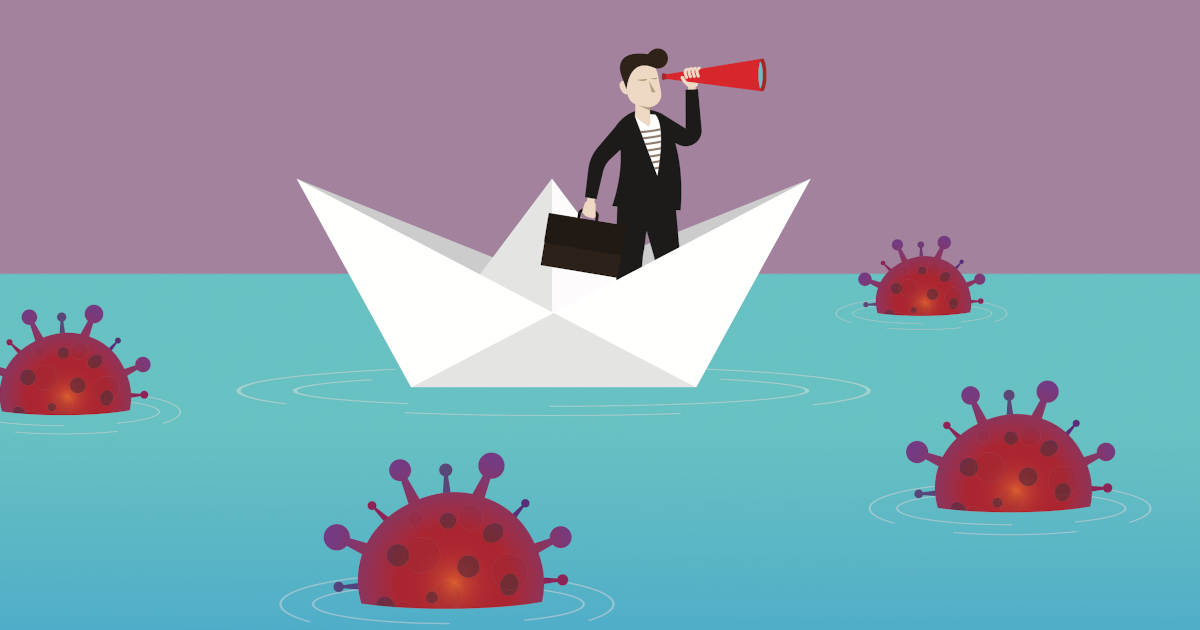Since the beginning of the Covid-19 pandemic, there have been some concerns about the way the new virus could affect people with HIV.
The premise here is that HIV-positive individuals may have a compromised immune response, which increases their vulnerability in the face of the new respiratory infection. Or does it?
Almost one year after the pandemic started, is there any evidence about the manner in which Covid-19 jeopardises the wellbeing of HIV positive individuals? Here is what researchers and medical professionals have found out so far.
The Worst Fears Didn’t Materialise Themselves
In the end of September, some positive news came from South Africa on the topic of HIV and Covid-19. South Africa is a country where 7.7 million people live with HIV and the prevalence of the infection among those aged 15 to 49 is 20.4 per cent of the population.
According to an article published in The Conversation journal, Covid-19 has not been as devastating as anticipated among the HIV-positive members of the country’s population.
Initially, medics and microbiologists anticipated that people living with conditions like HIV and tuberculosis would be disproportionately affected by the coronavirus. As of mid-September 2020, South Africa has registered 653,400 Covid-19 cases. Slightly over 15,700 people have lost their lives as a result of the infection (while initial projections gave nearly two times the figure).
The rates of hospitalisation and mortality were not elevated for individuals living with HIV in comparison to other low-risk population segments used as reference. Both the clinical characteristics and the outcome of the disease have been discovered to reach comparable levels among the population segments.
Why Hasn’t the Worst Case Scenario Come True?
The latest figures from South Africa confirm previous findings on the topic.=
On August 26, 2020, a review of studies on the topic was presented in the Viral Coinfection journal. The studies all looked at Covid-19 coinfections among 11,000 individuals living with HIV. Researchers analysing the data found out that there were no higher rates of hospital admission or fatalities among HIV-positive individuals in comparison to other people who became infected with coronavirus.
It’s still not clear why the worst-case scenario for HIV-positive people did not come true but medical professionals have a couple of interesting theories on the topic.
One of the most prominent theories is that the antiretroviral therapy (ART) that HIV-positive individuals take to supress their viral load could be offering some level of protection against the coronavirus, as well.
There’s one more theory and that takes a look at the immune effect of HIV.
According to the proponents of that thesis, the weakened immune response resulting from being HIV-positive keeps the organism from over-reacting in the event of Covid-19. This reduces the level of inflammation that is linked to the coronavirus infection and contributes to fewer symptoms and a reduced risk of complications.
A paper on the topic has been published in the Journal of Medical Virology. It stated that the weakened T-cell activity (T-cells are the body’s primary defenders and an important part of the immune system targeted by HIV), brings down inflammation and reduces the risk of an immune over-reaction.
One final theory offers a much more “abstract” reading of the phenomenon. According to the researchers that formulated the hypothesis, the HIV infection changes host cells in a way that creates a fairly unfavourable environment for the replication of the coronavirus.
It’s still too early to tell which one of these mechanisms is at play. One thing is certain – being HIV-positive and getting diagnosed with Covid-19 doesn’t mean you’ll have a more severe case of the infection that will require intensive care and even hospitalisation.
Recommendations for HIV-Positive Individuals
While the latest news is good, it’s still important to exercise caution and protect individuals who may have a compromised immune response.
UNAIDS has published a series of recommendations aimed at reducing the risk of coronavirus infection in people who are living with HIV.
Social distancing, stellar personal hygiene (washing or disinfecting hands) and the use of personal protection measures like masks and gloves are of utmost importance.
If you are feeling unwell, stay home and get in touch with your doctor by phone. Describe your symptoms and your activities from the previous days to help your GP determine if you are a good candidate for getting a Covid-19 test. The test is fairly simple and painless to do – a nose and throat swab will be performed to collect a sample.
Also, don’t forget to take your ART therapy as prescribed. When taken correctly, antiretroviral medications can make the HIV viral load undetectable. This way, you will make sure you’re in optimal health to reduce the risk of coming down with another viral infection.
Don’t hesitate to get in touch with a Singapore sexual health facility like Shim Clinic to find out more about HIV testing and medication protocols. We can offer confidential, professional assistance every single day of the week.
References:
- Makoti, P. (n.d.). HIV and Human Coronavirus Coinfections: A Historical Perspective. MDPI. Retrieved October 27, 2020, from https://www.mdpi.com/1999-4915/12/9/937
- Could HIV infection alter the clinical course of SARS‐CoV‐2 infection? When less is better. (n.d.). Journal of Medical Virology. Retrieved October 27, 2020, from https://www.ncbi.nlm.nih.gov/pmc/articles/PMC7262314/
- Early virus clearance and delayed antibody response in a case of COVID-19 with a history of co-infection with HIV-1 and HCV. (n.d.). PubMed Central (PMC). Retrieved October 27, 2020, from https://www.ncbi.nlm.nih.gov/pmc/articles/PMC7184426/

